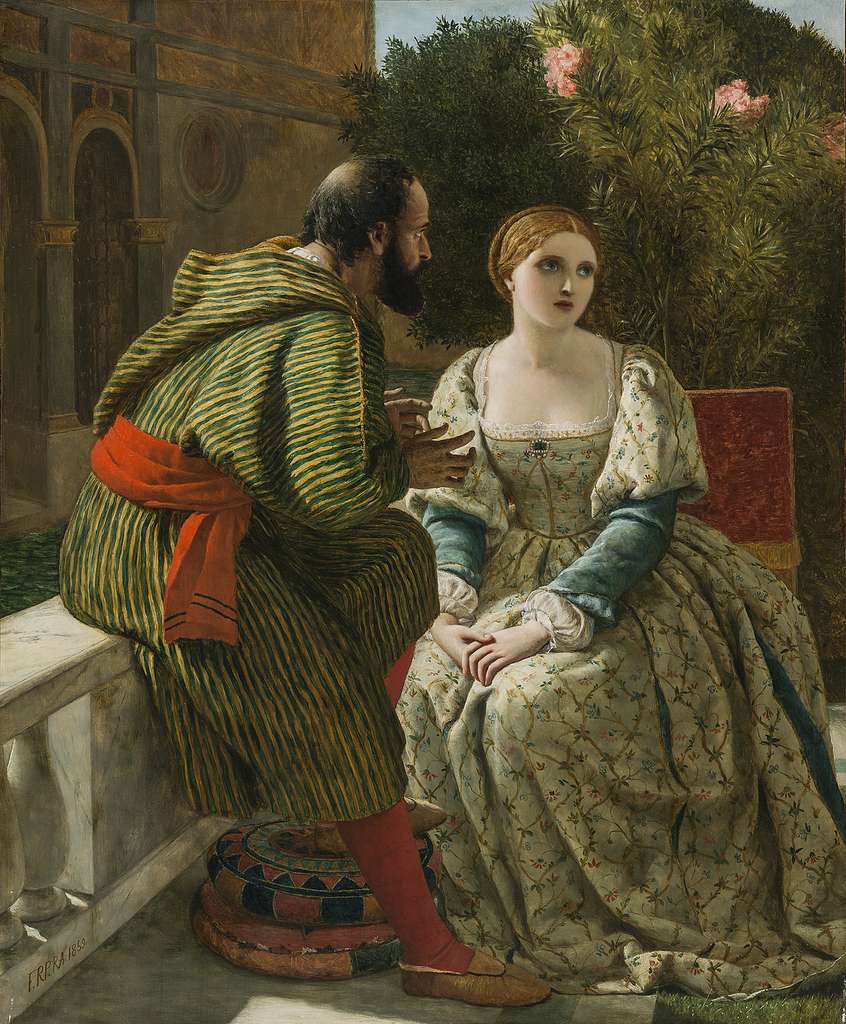The protagonists of Othello (Othello), Death of a Salesman (Willy Loman), and Keats’ poetry (notably Lamia from Lamia and the knight from La Belle Dame Sans Merci) all suffer, to an extent, a loss of identity. However, it is not necessarily true that the characters’ loss of identity is instigated by their tragic fall, but might instead be a cause of it.

Othello
Othello’s Moorish identity is a significant part of Othello, especially due to the constant racism he faces from characters such as Iago (who calls him a “barbary horse” and “devil”) and Brabantio (who accuses him of using “magic” to win over Desdemona). Early in the play (Act 1, Scene 2 and Scene 3), Othello does not outright reject his identity but acknowledges its limitations, understanding that his “parts… title and… perfect soul” are necessary to counteract racial prejudice in his trial. However, some rejection of his identity is inherent to his role as a general in the Venetian military; as a Moor, he almost certainly comes from a part of the world that has been damaged by colonial policy, however he fought colonial wars against “cannibals” in many “battles, sieges”. Othello’s interpretation of his own identity is largely irrelevant to his downfall, however in Act 4 it does appear that Othello is beginning to resent his identity, suggesting that he believes Desdemona to be unfaithful “haply, for I am black”. Therefore, it is evident that Othello’s ethnicity has led to him being somewhat insecure, and therefore susceptible to manipulation from Iago. In the instance of Othello, the tragedy is caused more by the loss of identity rather than vice versa.
Death of a Salesman
Willy Loman is clearly far more aligned with the natural world and with manual labour than he is with life in urban New York in white collar work. He demonstrates this during his card game with Charley, who he calls “disgusting” because “a man who can’t handle tools is not a man”. Furthermore, he is constantly distracted by the “scenery” of rural New England, and describes it as “so beautiful up there… the trees are so thick, and the sun is warm”, suggesting that he is inclined towards the natural world. However, Willy chooses to exist within New York, which has been urbanised since he has lived in his house (“there’s not a breath of fresh air in this neighbourhood”) due to his naïve belief in the American Dream and his ability to thrive within a capitalist society. This is in contrast to his natural identity, and this is a significant cause, not consequence of, his downfall.
Keats
Lamia is arguably the tragic hero that suffers from the most explicit loss of identity in Keats’ poetry, as it is categorised by a physical transformation. She begins the poem as a wondrous serpentine creature of the immortal world, “striped like a zebra, freckled like a pard”, however undergoes a painful transformation in to a mortal woman able to fulfil her mortal desires but with significantly less power. Due to this transformation, she is vulnerable to the world of rationality and science, embodied by Lycius, which leads to the ultimate tragedy of Lamia’s disappearance and Lycius’ death, and therefore the loss of identity was in part responsible for the tragedy. The knight from La Belle Dame Sans Merci has an equally significant but perhaps less obvious loss of identity than Lamia does, and it occurs as a result of the tragedy. After the “faery’s child” leaves the knight “on the cold hill’s side”, he undergoes an internal transition from being a proactive and forceful patriarch from a hyper-masculine world of war and killing, and becomes a physically weakened, “ail[ed]” character with a “lily on [his] brow” and “on [his] cheeks a fading rose”. Regarding this poem, it is certainly true that the tragedy of La Belle Dame Sans Merci instigated the loss of the knight’s identity.
With thanks to KW in year 13



